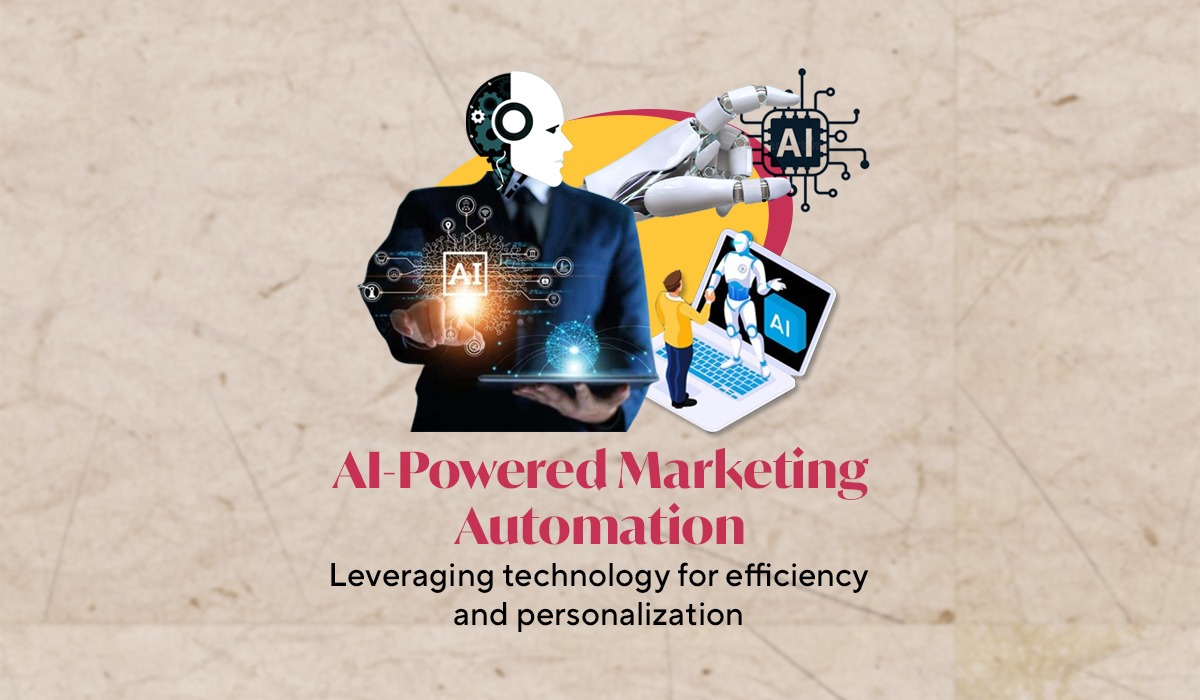Artificial intelligence (AI) enables marketers to automate tasks and campaigns at a completely different scale in a way that has never been seen before. However, AI tools are widely available and rapidly approaching us!
Because of this, it may be difficult for marketers to know where to begin using AI and realize that there are many solutions (other than ChatGPT) available that can facilitate efficiency gains, consumer insights, and personalization.
We’ve compiled a list of the top AI marketing tools for various digital marketing tasks to assist you in getting started and selecting the appropriate tool, but first, look at how AI supports marketing automation.
What is AI in Marketing?
Automating repetitive processes such as maintaining subscriber lists, following up with consumers regarding abandoned carts, and offering automated customer support are just a few examples of the many tasks that may be automated using marketing automation.
AI marketing solutions typically integrate into your current platforms or applications and help automate these operations.
Were you aware? AI and marketing automation are actively used by 28% of the best businesses in all industries.
Many organizations employ the most effective marketing automation, or AI marketing, solutions to identify quality leads, build campaigns, and monitor the sales funnel with extreme precision. AI marketing tools are made to increase productivity and enhance users’ creativity, insight, and effectiveness by automating repetitive processes.
The Rise of AI-Powered Marketing Automation
The traditional approach to marketing often involved manual processes, extensive data analysis, and guesswork. However, with the advent of AI-powered marketing automation, businesses can now automate repetitive tasks, analyze vast amounts of data in real time, and gain valuable insights into customer behavior and preferences.
AI-powered marketing automation platforms utilize advanced algorithms and machine learning techniques to automate various aspects of the marketing process. From lead generation and customer segmentation to content personalization and predictive analytics, AI empowers marketers to make data-driven decisions and optimize their campaigns for better results.
Enhancing Efficiency with Automation
One of the primary benefits of AI-powered marketing automation is its ability to enhance efficiency across the entire marketing workflow. Tasks that would typically require hours of manual labor can now be automated, allowing marketers to focus their time and resources on strategic initiatives.
For example, AI algorithms can analyze customer data to identify patterns and trends, enabling marketers to target their audience with highly relevant content and offers. Automated email campaigns can be personalized based on customer preferences, past interactions, and purchasing behavior, resulting in higher engagement and conversion rates.
Furthermore, AI-powered chatbots can provide instant support to customers, answer frequently asked questions, and even assist with purchasing decisions. By automating these routine tasks, businesses can provide round-the-clock assistance to their customers while freeing up valuable human resources for more complex inquiries.
Delivering Personalized Experiences
Personalization has become a key differentiator in today’s competitive marketplace. Consumers expect brands to understand their needs and preferences and deliver tailored experiences across all touchpoints. AI-powered marketing automation enables businesses to achieve this level of personalization at scale.
Through advanced data analysis and machine learning algorithms, AI can segment customers based on their demographic information, browsing behavior, purchase history, and engagement patterns. Marketers can then create targeted campaigns and content that resonate with each segment, increasing the likelihood of conversion and customer satisfaction.
For instance, an e-commerce retailer can use AI to recommend products based on a customer’s browsing and purchase history, similar to the way leading platforms like Amazon personalized recommendations. By delivering relevant product recommendations and promotional offers, businesses can enhance the overall shopping experience and foster customer loyalty.
Driving Revenue with Predictive Analytics
Another powerful application of AI-powered marketing automation is predictive analytics. By analyzing historical data and identifying patterns, AI algorithms can predict future trends, customer behavior, and potential outcomes with a high degree of accuracy.
Predictive analytics can help businesses optimize their marketing strategies, allocate resources more effectively, and identify opportunities for growth. For example, AI algorithms can forecast customer lifetime value, allowing marketers to prioritize high-value segments and tailor their campaigns accordingly.
Furthermore, predictive analytics can help businesses identify potential churn risks and proactively engage with at-risk customers to prevent attrition. By understanding customer behavior and preferences in advance, businesses can anticipate their needs and deliver personalized experiences that drive retention and loyalty.
Conclusion
In conclusion, AI-powered marketing automation is revolutionizing the way businesses engage with their customers and drive results. By leveraging advanced algorithms, machine learning techniques, and predictive analytics, marketers can enhance efficiency, deliver personalized experiences, and drive revenue growth.
As technology continues to evolve, the role of AI in marketing will only become more prominent. Businesses that embrace AI-powered marketing automation today will gain a competitive advantage tomorrow, positioning themselves for long-term success in the dynamic digital landscape.
In essence, AI-powered marketing automation isn’t just a technological advancement—it’s a strategic imperative for businesses looking to thrive in the age of digital transformation.




